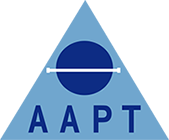News
The resilience and preparedness of the United Kingdom
AAPT notes the publication of Baroness Hallett’s Covid-19 Inquiry Module 1 Report – The resilience and preparedness of the United Kingdom
Anatomical Pathology Technologists (APTs) were extensively involved in the response to the Covid-19 pandemic, not only in ensuring existing NHS and Local Authority mortuaries continued to provide their usual high levels of care throughout the response and recovery phases of the emergency, but also to plan, build and operate temporary facilities to manage the expected numbers of deaths predicted by the various mortality models put forward as the pandemic progressed.
Many APTs were already involved in planning for mass fatality and excess death scenarios before the pandemic hit, but the classification – later rescinded – of Covid-19 as a high consequence infectious disease in early 2020 and subsequent ‘reasonable worst-case scenario’ figures released by SAGE, brought virtually all APTs into contact with the world of Emergency Preparedness, Resilience and Response (EPRR).
AAPT Chair, John Pitchers, said:
“My personal experience of Emergency Planners in this context is one of a dedicated workforce, with a relentless drive to prepare for the worst, and to look after those affected when the worst happens; helping them and their wider communities recover.
AAPT welcomes the recommendations put forward in this report – it was apparent during the pandemic that the wealth of knowledge and experience that exists within local Emergency Planning, Health Protection and wider Public Health Teams was not sufficiently utilised, sometimes in favour of a top-down, Central-Government-knows-best approach that resulted in a fragmented and sluggish response in places, and to the detriment of the effective use of public money.
The creation of a single, independent statutory body responsible for whole system preparedness and response is long overdue and would represent a positive step forward, as long as all expertise, local and national, is allowed to feed in”
